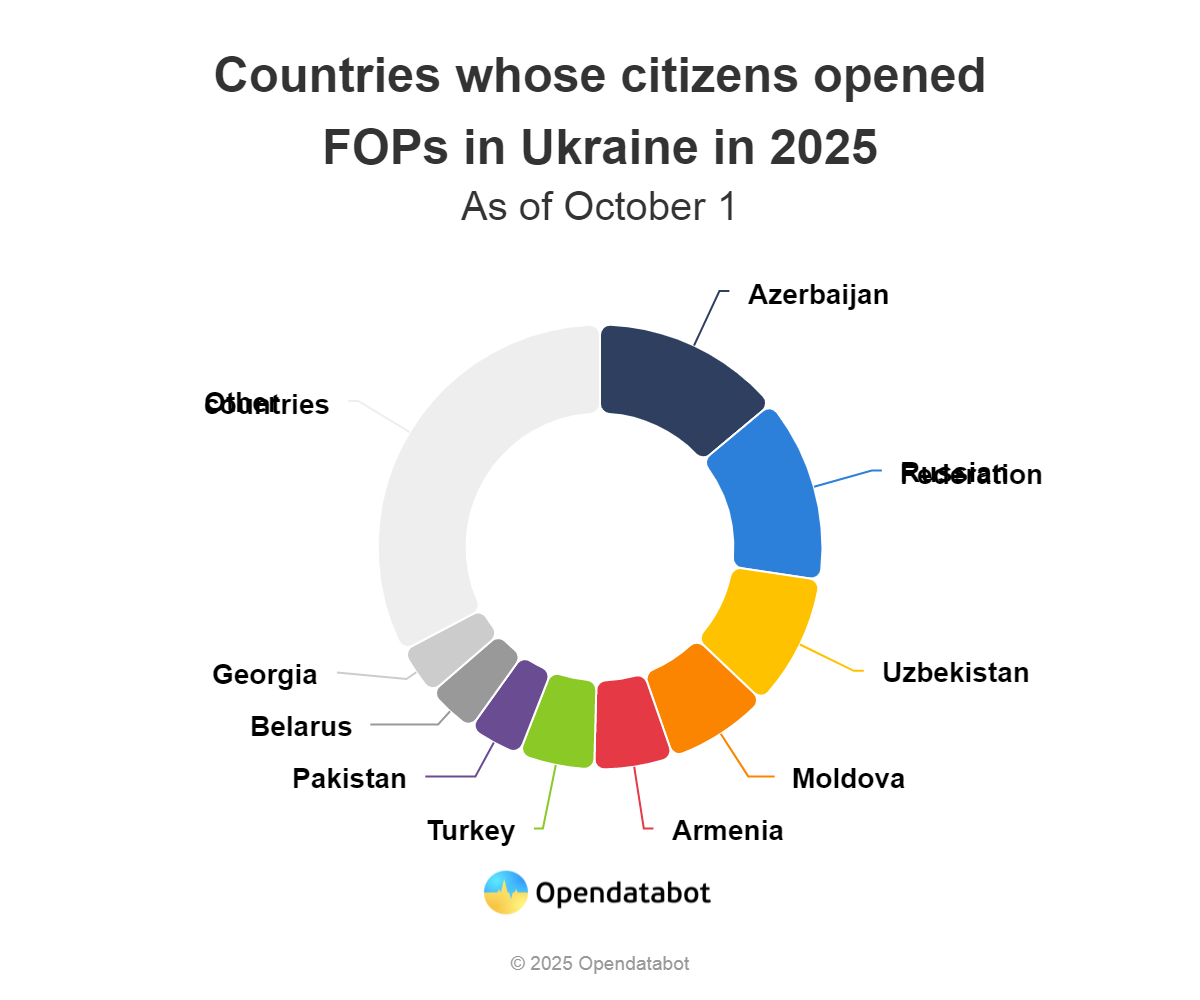In the first nine months of 2025, more than 1,600 sole proprietorships (SPs) were opened in Ukraine by foreign nationals, according to the Unified State Register. This represents a nearly 10% decline compared to the same period last year. Despite the drop, the net growth — the difference between openings and closures — reached 490 foreign-owned businesses, reports Opendatabot.
The largest group of foreign entrepreneurs comes from Azerbaijan (229 SPs, 14%), followed closely by citizens of Russia (222, 14%), Uzbekistan (160, 10%), Moldova (125, 8%), and Armenia (95, 6%). In contrast, Russian citizens also lead in business closures, with 241 SPs shut down (21%), followed by Azerbaijan, Moldova, Uzbekistan, and Belarus.

Foreign entrepreneurs represent only 0.7% of all new entrepreneurs in Ukraine this year, and their share of business closures is equally small — 0.5% of total shutdowns.
Unlike Ukrainian business owners, foreign entrepreneurs are predominantly male (69%), with women accounting for 31%. They also tend to be more resilient: the median lifespan of a foreign-owned business is 3.1 years, compared to 2.5 years for Ukrainian businesses. The longest-running foreign business was operated by a Russian woman for 30 years before closing this year.
“Opening a sole proprietorship as a foreigner is completely legal,” said Denys Popov, head of the Legal Department at Opendatabot. “Those with temporary or permanent residence permits can register a tax identification number and operate on the same terms as Ukrainians. Russian citizens are no exception — as long as they legally reside in Ukraine, the procedure is the same as for any other foreigner.”
Most foreign-owned businesses are concentrated in the trade sector, followed by food services (14%), wholesale trade (9%), computer programming (6%), and information services (4%). Business closures largely occur in the same sectors, with retail trade (37%), computer programming (10%), and food services (9%) leading.
Geographically, Kyiv remains the top choice for foreign entrepreneurs, with 544 new SPs, followed by Odessa region (300, 18%), Kyiv region (138, 8%), Kharkiv region (104, 6%), and Lviv region (83, 5%). The fewest registrations occurred in Volyn, Chernihiv, Sumy, Donetsk, and Kherson regions, with 2 to 17 businesses each. Business closures also reflect similar patterns, with Kyiv, Odesa, and Kharkiv regions accounting for the majority.
_1760344506.png/aEJUjbfEF8MEXwZJO3naHK5NoNnF7pT6TrONTnXs.png)





















